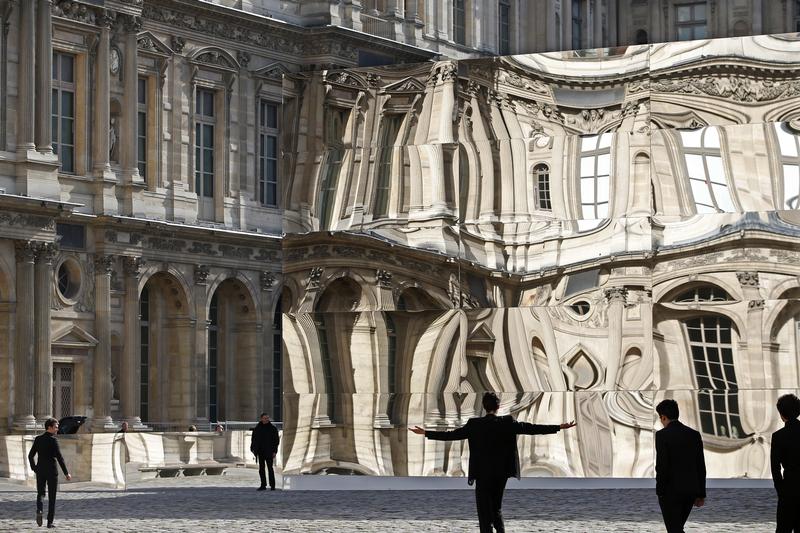Before blockchain's impact on the working world can be grasped, the technology itself must be understood. Here, three Thomson Reuters professionals provide an easy-to-understand guide.
Blockchain is going to reshape the way things work.
If it fulfills its potential – and the signs are it may – blockchain will dramatically alter everything from established industries like law and accounting to many of the small, routine transactions people perform every day.
“While this started out as a way to move money around, it turns out you can put a lot of information, like contracts and property records, on blockchain,” said Dan Bennett, Vice President and Head of Enterprise Data Services. “It can’t do everything, but there are some problems it’s uniquely suited to.”
But what exactly is blockchain?
Here, three Thomson Reuters professionals who understand blockchain provide a layperson’s guide to understanding blockchain, how it works and why it matters.

What is blockchain?
The easiest way to think of blockchain is as a two-column balance book spread across a network. This is why it’s often referred to as a “distributed ledger.”
“Imagine a cloud ledger, like Google sheets, but where each cell can only be modified if you unlock it with a highly complex password,” explained Technology Services Manager Andrew McLennan-Murray.
At its heart, blockchain is a digital platform for recording and verifying transactions. Each transaction is written to a “block” and the list of blocks becomes a “chain,” hence the name “blockchain.” Once a block is closed and added to the chain, it can never be modified again.
The record created by blockchain doesn’t exist in one place. Rather, copies of it exist with each user. Since transactions are recorded chronologically and the member computers can periodically and systematically verify the record of transactions, blockchain creates an unchangeable record that can’t be falsified.
“Consensus is an important part of the nature of blockchain,” McLennan-Murray said. “All of the computers that are participating in an instance of blockchain have to all agree that a certain record has a certain value. The consensus mechanism means it can’t be altered by a single user.”

What is blockchain’s relationship with Bitcoin?
Blockchain and Bitcoin are linked in people’s minds because Bitcoin (a cryptocurrency, or unregulated digital currency that is thought to have value without the backing or authority of a government) was the first widely adopted Blockchain application.
Blockchain and Bitcoin aren’t the same thing, but they’re often thought of together because Bitcoin transactions are logged on an open-platform distributed ledger that exists on a peer-to-peer network; in other words, blockchain.
Bitcoin can also be the reward for sharing the workload of maintaining the blockchain. There needs to be an incentive for maintaining a computer that forms part of the network. With the Bitcoin network, the possible generation of new coin (so-called “mining”) is the incentive.
Why is blockchain a big deal?
For a comparatively simple technology, blockchain has an outsized ability to create philosophical, sociological and economic changes.
“What would happen if you didn’t have to have just one authority, like a government, for master records?” Bennett asked. “If we’re freed from that, what would be possible?”
If blockchain is widely adopted, its “trust without authority” characteristic, as McLennan-Murray put it, will mean people don’t have to trust many of the institutions and roles they’re asked to trust today (if they do in the first place, or if they even think about it.)

What industries will blockchain impact?
The short answer to the above question is “Most of them,” but here’s a look at three specific industries:
Tax and Accounting
Tax and accounting may be the first industry to see the earliest significant changes as a result of blockchain. Since it automatically verifies transactions, blockchain will possibly mean the way we perform auditing today will become outmoded. If every transaction is publicly inspectable then the need for audit is diminished. It’s important to note, though, the advent of blockchain won’t necessarily mean auditing itself will become outmoded; just the way organizations perform it currently might. That’s an important distinction.
“For the near future, I think the answer to whether blockchain is going to largely replace decision processes, rather than supplement them, is probably ‘no’,” said Hella Hoffman, a data scientist with Thomson Reuters Labs. “Blockchain technology can increase transaction transparency and automate repetitive bookkeeping tasks, but it won’t replace the need for human guidance to answer complex questions about the transactions themselves.”
Legal
Blockchain will likely streamline and simplify the more mundane aspects of legal work, meaning attorneys will be able to concentrate on the kind of legal work that is more demanding and more profitable.
“You don’t need to contact a lawyer on every single contract you sign” Hoffmann said. “However, you do need a lawyer to help establish the basis of the contract in the first place. We’re not going to replace lawyers, but we’re going to need lawyers to understand technology more. We’re going to need professionals to understand what goes into the contract and what level of, say, proof of authority is needed. If a lawyer can work with technology and say ‘We need this to go in the contract’ or ‘This is vulnerable to exploitation in this way,’ that’s very valuable and necessary.”
Finance
While blockchain may make some things in finance easier (banks can use it to conduct transactions between each other quickly and cheaply, for example) it will first cause a period of great tumult. Smart financial contracts and tokenized investments, for example, both use blockchain as a launching pad and both are going to alter the way financial institutions do business. Finance’s era of disruption may not be as close as the tax and accounting industry’s, but it promises to be very eventful.
Learn more
Our report Are you ready for blockchain? is available for complimentary download.
Explore our full suite of technology solutions.






